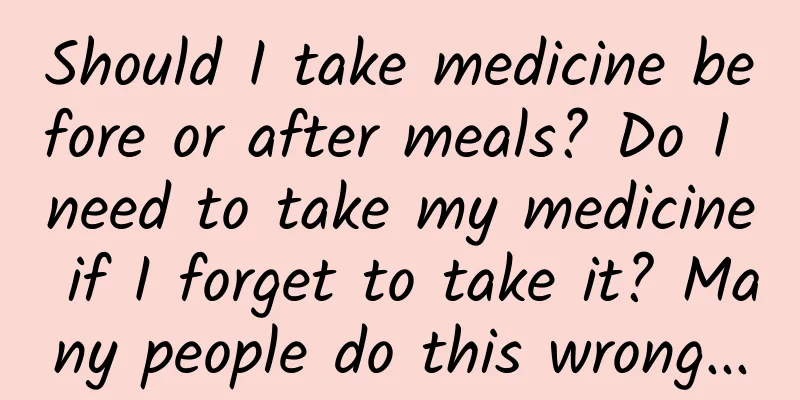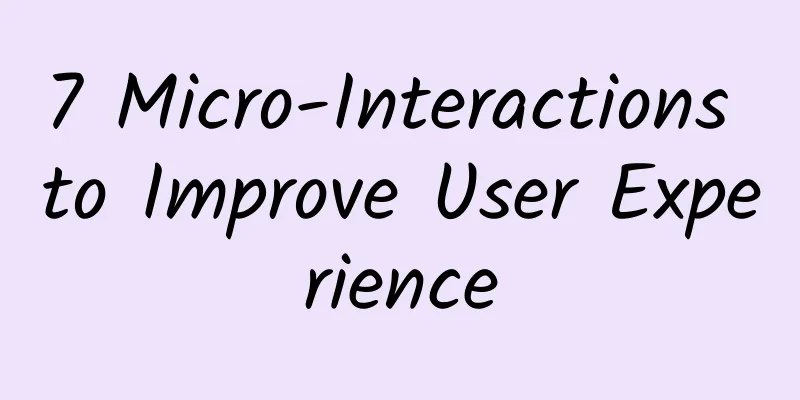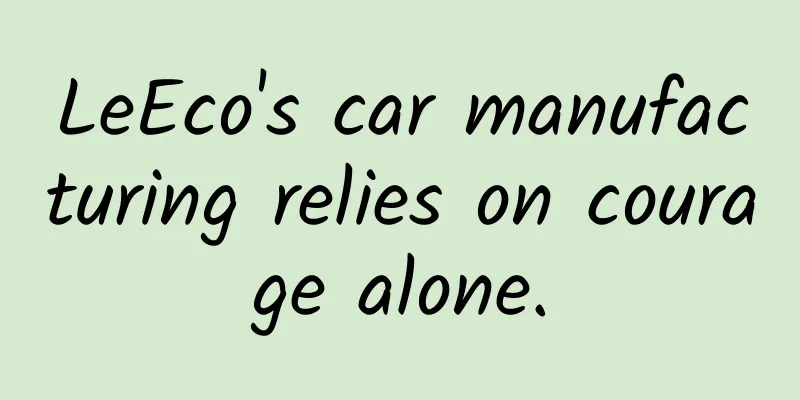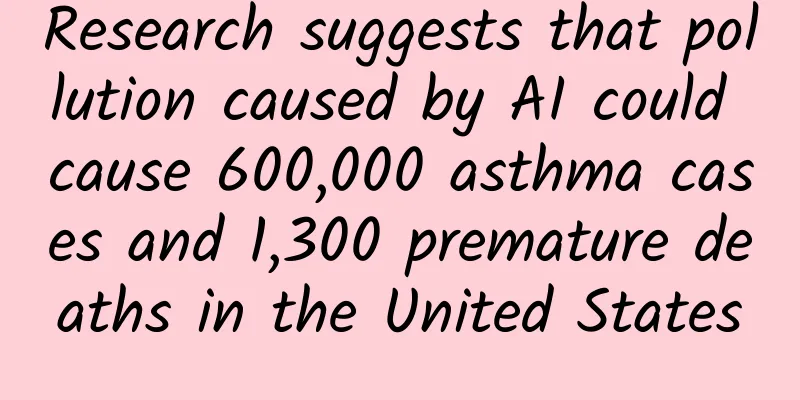Should I take medicine before or after meals? Do I need to take my medicine if I forget to take it? Many people do this wrong...

|
Experts in this article: Wang Wei, Deputy Director of the Pharmacy Department, Ulanhot People's Hospital, Inner Mongolia Liu Zhijun, Chief Pharmacist, Beijing Anzhen Hospital, Capital Medical University, Member of the Anti-Infective Pharmacology Committee of the Beijing Pharmacological Society When it comes to taking medicine, there are many things that give people headaches: Eat in the morning? At noon? At night? Before, during, or after meals? What should I do if I forget to take a dose? Should I take it right away or double the dose next time? Are you really taking the right medicine? Today, we will clarify all these questions at once. Do different medicines have different time of taking? The time to take a drug needs to consider many factors, the most common of which is the impact of the human body's physiological rhythm on the time of taking the drug. Generally speaking, a person's blood pressure fluctuates over a 24-hour period, and there is a certain rhythm in the day and night blood pressure. When the human body changes from a sleep state at night to an activity in the early morning, blood pressure (and heart rate) rises rapidly from a relatively low level to a higher level. Therefore, taking antihypertensive drugs in the morning can better control morning peak hypertension. Some medications are recommended to be taken before bed. For example, the lipid-lowering drug simvastatin is familiar to everyone. Since the liver likes to work late at night to synthesize cholesterol, it works more efficiently at night. Therefore, taking simvastatin (as well as lovastatin, pravastatin, etc.) before bedtime, when it reaches a higher concentration after absorption, can effectively inhibit the liver's high-efficiency cholesterol synthesis process at night and exert the maximum therapeutic effect. Some medicines should be taken before meals, and some after meals? Some people believe that food will affect the absorption of drugs and they should be taken before meals; while others believe that drugs will irritate the stomach and they should be taken after meals. In fact, from a pharmaceutical point of view, whether to take medicine before or after meals needs to consider the following three factors: Effects of food on drug absorption The absorption of some drugs can be affected by food or certain ingredients in food, resulting in slower absorption or even no absorption. For example, the absorption of levothyroxine sodium (Euthyroxine) will be affected by iron, calcium and other ions in food. Therefore, the instructions clearly state that levothyroxine sodium tablets should be taken half an hour before breakfast (on an empty stomach). Food can reduce the total absorption of the antihypertensive drug captopril by 50%, so it should also be taken on an empty stomach. Does the drug have a significant irritating effect on the stomach? Gastrointestinal adverse reactions are often an important factor affecting the timing of drug administration. For example, the instructions for use of ferrous fumarate, an iron supplement for the treatment of anemia, clearly state that the drug should be taken after or during meals to reduce stomach irritation. If you are intolerant to the gastric irritation caused by the hypoglycemic drug metformin, you can also take it after meals. Effect of drug dosage form on medication time Enteric-coated aspirin tablets are designed to prevent aspirin from irritating the stomach. The tablets are enteric-coated so that they do not disintegrate in gastric juice but disintegrate in intestinal juice, thereby reducing the irritation to the stomach. Because gastric emptying time is prolonged after eating, it is recommended to take enteric-coated aspirin tablets on an emptying stomach in order to speed up the emptying of the tablets from the stomach into the intestines, and then disintegrate, release the drug and absorb it. Another example is omeprazole enteric-coated capsules. In order to prevent omeprazole from being destroyed in gastric acid, they are made into enteric-coated capsules. However, the activation of omeprazole depends on the secretion of gastric acid. Therefore, they are taken 0.5-1 hour before meals. This will speed up the intestinal absorption of omeprazole enteric-coated capsules into the blood, and also activate omeprazole with the help of the gastric acid secretion stimulated after meals, ultimately effectively inhibiting gastric acid secretion. What should I do if I forget to take my medicine? Should I take double the dose next time? Taking medication regularly is the top priority to ensure the smooth effect of the medicine, but there is always a loophole. What should you do if you miss a dose of medication? Should I take the supplementary dose immediately? Double the dose next time? Or should I ignore it? Do not act rashly, especially do not blindly double the dose the next time you take the medicine, so as to avoid serious consequences. For example, doubling the dose of antihypertensive and hypoglycemic drugs will increase the efficacy of the drug, which can easily lead to hypotension or hypoglycemia. In a sense, a severe hypoglycemia or the cardiovascular events induced by it can offset the benefits of long-term hypoglycemic treatment. Therefore, if you miss a dose of medicine, you must take it when it is time to do so (such as oral contraceptives, levothyroxine sodium, oral anticoagulants). If you miss the missed dose time, avoid taking it blindly and consult a doctor in time. If the symptoms disappear, do I still need to continue taking the medicine? Many people have encountered this problem when taking medicine: After a period of treatment, if the symptoms disappear, can I stop taking the medicine? Or if the symptoms have disappeared but you have not finished taking the medicine, do not waste it and continue taking it. This actually involves the issue of the "course" of disease treatment. 1. Many diseases require long-term (even lifelong) treatment, such as chronic diseases such as hypertension, diabetes, and coronary heart disease. Drug treatment can indeed control blood pressure and blood sugar levels, but once the medication is stopped, it will get out of control again. At present, the treatment of these diseases is lifelong, and the medication cannot be stopped even if the symptoms are relieved. 2. Some diseases, such as colds and infections (commonly known as "inflammation"), have a certain course of treatment. Generally speaking, after taking enough courses according to the doctor's instructions, you should stop taking the medicine in time under the doctor's guidance. The idea of continuing to take medicine in order to "not waste" is wrong and even harmful. For example, the abuse of antibacterial drugs can lead to dysbiosis, antibiotic-related diarrhea, and even induce bacterial resistance. Of course, stopping the drug too early is also harmful. The easiest way is to consult a professional doctor or pharmacist to see whether to stop taking the medicine after the symptoms disappear. The medicine is difficult to swallow. Can I break it into pieces and take it? Common medicines include tablets, capsules, solutions, granules, etc. Tablets include ordinary tablets, chewable tablets, sustained-release tablets, enteric-coated tablets... There are so many different dosage forms, which ones can be broken apart and taken? Which ones can’t? This is determined by the nature of the drug itself and the characteristics of the preparation. 1. Some drugs are bitter or have an unpleasant odor, so they are made into capsules or coated tablets to cover up the taste. Some drugs are irritating to the gastrointestinal tract or will be destroyed and become ineffective in stomach acid, so enteric coatings are put on the surface of the drugs so that the drugs only dissolve in the intestines but not in the stomach. These dosage forms of medicine should not be taken separately. 2. Sustained-release and controlled-release preparations use special processes to slowly release drugs in the body and prolong the duration of drug action. These drugs have special "preparation processes". Once they are broken or ground, the process is destroyed, resulting in "sudden release" of the drugs, which can produce toxicity. Therefore, general sustained-release and controlled-release preparations cannot be broken or crushed for oral administration. However, some sustained-release tablets are made by pressing several independent sustained-release microcapsules into tablets. After being broken apart or dispersed in water, they still have sustained-release and controlled-release effects. This type of tablet can be broken apart and taken (such as metoprolol succinate sustained-release tablets and isosorbide mononitrate sustained-release tablets), but they still cannot be chewed or crushed (the microcapsules will be destroyed at this time). 3. Some medicines need to be chewed before taking to speed up the effect, such as lactobacillus tablets, dry yeast tablets, and acarbose (glycopyrrolate or cabopin). Tips: If there is a score in the middle of the tablet, it generally means that it can be broken into pieces. However, it should be noted that being able to be broken into pieces does not mean that it can be crushed into pieces. In conclusion Be sure to read the instructions carefully before taking the medicine Or consult your doctor or pharmacist directly Don't take medication recklessly The pictures in this article with the "Science Popularization China" watermark are all from the copyright gallery. The pictures are not authorized for reprinting. |
<<: Congratulations! It’s the first anniversary of Chang’e 5’s launch!
>>: Radio Gymnastics is 70 years old! Are there any young you in these photos?
Recommend
Air turns into fuel? This technology may hold the code to energy
Produced by: Science Popularization China Produce...
Is Apple finally going to add facial recognition to the MacBook Pro?
According to foreign media iLounge, in 2020, Appl...
How did Facebook get to 2 billion users? The answer is "science" and "empathy"
Yesterday afternoon, Zuckerberg said more than 65...
"Is outbound marketing part of SEO?" Is there any difference between online promotion and outbound marketing specialist?
Is outbound marketing considered SEO? Is there an...
Counterpoint: Global cellular IoT module shipments fell 2% in Q3 2023
According to the latest data from Counterpoint, g...
Allergy Revelation: Why are more and more people suffering from allergies?
© Buckhead Primary and Urgent Care Clinic Leviath...
The copy is gorgeous, but there is still no conversion rate? You need to understand this principle
There is a very common phenomenon in the copywrit...
What the hell is this? How to choose the online promotion method?
Recently, many companies may be promoting the &qu...
The trillion-dollar business of live streaming sales!
Amidst the attention of the entire nation and the...
The secret of Pinduoduo’s cash flow for user growth
It has only been five years since Pinduoduo went ...
How much does it cost to join the rubber and plastic mini program in Nanjing?
How much does it cost to join a rubber and plasti...
Nissan launches smartwatch that connects car and driver to display speed and heart rate
[September 9th news] Recently, Nissan released a s...
【Fire safety】What fire safety knowledge do you need to know in your daily life? Please save it!
Do not plug too many plugs into one electrical ou...
Let's prepare to pay tribute to the Xiaomi Empire
"Introduction": This is a long article....
Japan has an outbreak of "man-eating bacteria" infection with a mortality rate of up to 30%. Do bacteria really eat people?
"A new deadly infectious disease with a high...









